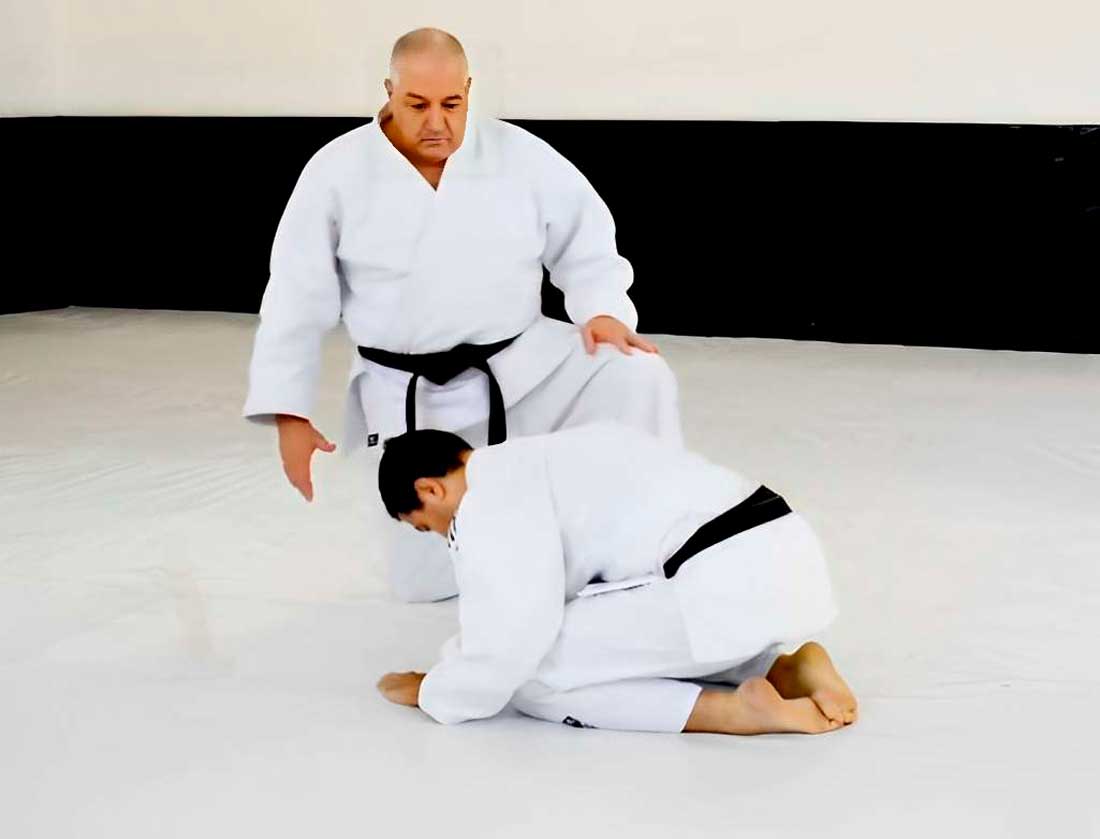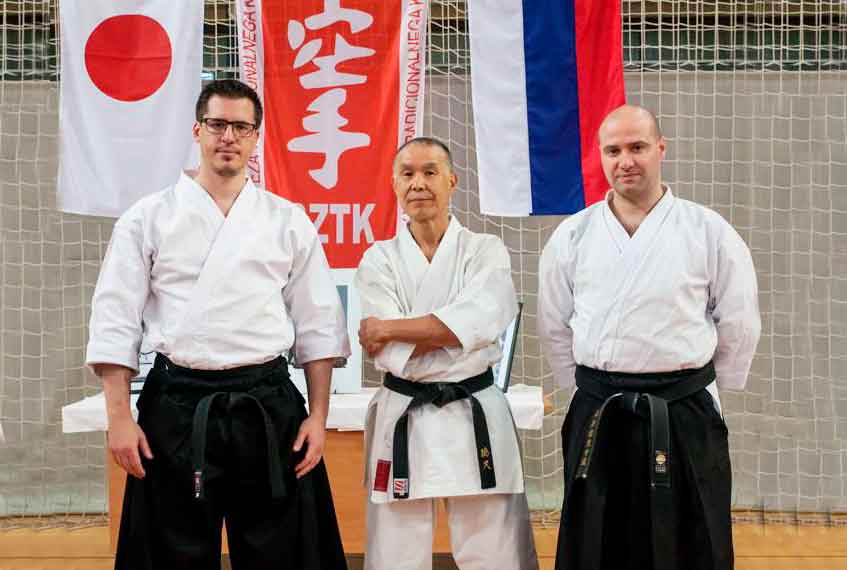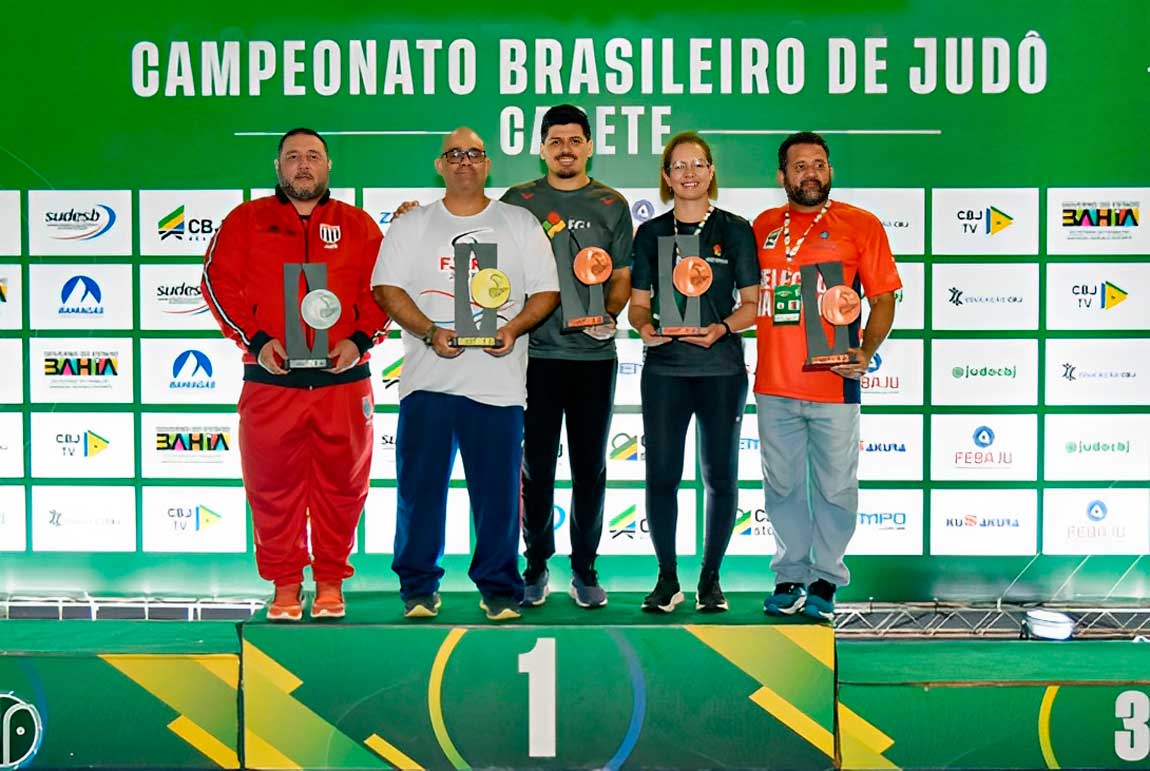30 de junho de 2025

 Shihan Takashi Tokuhisa, former president Jernej Cufer and president Marko Mitrovic
Shihan Takashi Tokuhisa, former president Jernej Cufer and president Marko Mitrovic
In an interview for Revista Budô, the directors of the Slovenian Traditional Karate Federation (SZTK) Marko Mitrović, president, and Roman Pavlovič, vice president, present the entity’s principles, values and objectives for the development of the sport in Slovenia, a country located in the Central Europe. Furthermore, the managers expose SZTK’s international relations and its proposals to popularize traditional karate (ITKF) across the globe.
The Slovenian Traditional Karate Federation is the second largest karate organization in Slovenia, with more than 1,000 members training in around 50 dojos across the country. According to public records, there are 160 karate clubs in Slovenia, but approximately 12% of them are not members of any of the ten federations (some with international connections) in operation. Slovenia has a population of 2 million people, and it is estimated that there are between 10,000 and 12,000 regular practitioners.
Roman Pavlovič, current vice president, explains that SZTK is a democratic organization that establishes a change of leadership every two terms. He and Marko Mitrović have alternated in the presidency and have been working as a team for a long time.
“It says a lot about the specific relationships that we are cultivating in our organization. Our team is made up of people of different profiles, including high-level managers, teachers, lawyers, management consultants, accountants, entrepreneurs and a wide range of professionals. We always look for a solution that is the best for traditional Slovenian karate and all our members. Each member can be actively and directly involved in our activities, according to their competence, availability and interest. This is an efficient way to manage our organization”, he revealed.
The entity and the principle of volunteering
Pavlovič emphasizes that all employees are volunteers. “They do not receive any remuneration, although the organization has a stable financial situation. Its business model is based on different sources of funds. First, the entity receives fees from events and subscriptions, in addition to government funding and other sources. The group decides which activities and projects it will support, choosing those whose strategic objectives align with the interests of all members.”
The principles of SZTK are organized according to the common values of the participants: volunteering, independence and non-profit making, as well as compliance with the cultivation of traditional karate in all its forms. Their training method and competition rules follow the standards of the International Traditional Karate Federation (ITKF). “We promote friendly relations between athletes from Slovenia and all around the world, bearing in mind the principles of equality, respect for human rights and fundamental freedoms, regardless of race, sex, language or religion,” said Mitrović.
“We are an independent organization recognized by the Slovenian Olympic Committee and the Ministry of Education, Science and Sports, as well as by the Japanese State, of which we are long-standing and high-quality partners through the Japanese Embassy in Ljubljana. Our mentor and shihan Takashi Tokuhisa was the first karate instructor in Slovenia to have his work recognized by that country’s ambassador,” added Mitrović.

Borut Strojin, President of KZS and Marko Mitrović at the signing of the letter of intent for mutual support
Despite being an independent entity, SZTK actively collaborates with several karate organizations in Slovenia, based on common interests. The best example is the partnership with Shotokan Karate-do International Federation (SKIF). The world and European federations have worked together successfully in competitions and other fields for more than seven years.
For the first time in the history of the Republic of Slovenia, in January 2021, a national strategy for the development of karate until 2028 was prepared. The document is based on proposals from representatives of the two largest karate organizations in Slovenia – the Karate Federation of Slovenia (KZS) and the Slovenian Traditional Karate Federation (SZTK) – and other karate entities. The representative of SZTK was appointed to lead and manage this project, whose main objective is to define directions for the development of the sport, seeking the orderly and joint operation of all activities in the field of karate and para-karate.
SZTK as an organization
The Slovenian Traditional Karate Federation was founded in 2003 and received official recognition from the ITKF in Davos in 2004, when Sensei Nishiyama informed his membership on the Slovenian National Olympic Committee. This was a crucial fact to conquer official recognition by the government.
Vice president Pavlovič says that associates realized that just knowing karate as a martial art doesn’t mean enough competence to run a successful organization. Therefore, they look for experienced professionals to manage the entity. “From the beginning, we recognized our core values in karate as 100% traditional, while our organization is modern, based on agile and flexible management principles, with high levels of transparency, democracy and a free flow of information.” President Marko Mitrović adds that this way of thinking and operating has brought great results to organic growth, both because of the size and the quality of the organization.
Roots of the slovenian karate
About the introduction of martial arts in Slovenia, Mitrović explains that the milestone – in the formal sense of uniform and unified operation of karate, according to the legal order of existing clubs – was the establishment of the Slovenian Karate Association (KZS) in 1969. After six years, Slovenian Karate Organization Association (ZKOS) was renamed. In the same year, with the change and improvement of the rules, women were allowed to participate in competitions. That name remained until Slovenia’s independence in 1991.
Roman Pavlovič explains that professors Vladimir Jorga and Hidetaka Nishiyama have shown great support for their official registration as a federation. Nishiyama’s letter of support helped the organization to receive an official recognition from the Slovenian National Olympic Committee and the Ministry of Education, Science and Sport. However, the roots of traditional karate in Slovenia goes back to the visits of sensei Taiji Kase in the late 1960s, who had a strong influence, as well as the full-time presence of his then assistant professor Tokuhisa Takashi, since the early 1970s.

The Japanese embassy in Slovenia grants special recognition from the Japanese government to sensei Takashi Tokuhisa for his achievements
Globally, as in Slovenia, karate has lost contact with its origins and has taken on a predominantly sporting character, said Mitrović. “Karate is no longer just a traditional Japanese skill, it has also received a strong competitive tone on a global level and guidance that has resulted in a change in the sport. The most important world federations in the past were WUKO (sports karate) and ITKF (traditional karate). Today, in Slovenia, they are the Slovenian Karate Association (KZS) and the Traditional Slovenian Karate Federation (SZTK).”
Takashi Tokuhisa, the Slovenian karate shihan, was born on October 29, 1947 in Yahata, on the Japanese island of Kyushu. He started practicing karate in 1962 and, according to the rules of the time, reached the master black belt after just one year of training. He also proved to be an excellent competitor in his youth. In 1969, he participated in the National Championship of Japan, in which he defeated the absolute favorite master in the kumite final. He studied and graduated in economics at the University of Tokyo and, in 1970, went to Europe, first to Paris, where he joined the group of master Taiji Kase, who became his teacher for life.
At that time, teacher san-dan (3rd dan) Tokuhisa was the most prominent young Japanese instructor in Europe. In the late 1970s, Kase sent him as an instructor to the former Yugoslavia with the intention of leading a traditional karate seminar in Slovenia for a month. In December 2020, he completed 50 years of active teaching of karate-do in Slovenia and abroad. He works in Ljubljana and is still a very active sensei today, imparting knowledge, technique, experience and wisdom. He teaches at a school all week and continues to cultivate karate in various seminars at home and abroad. Shihan Tokuhisa passes on his rich knowledge to all generations.
On September 13, 2017, at an event organized by the Ministry of Foreign Affairs of Japan, Japan’s ambassador to Slovenia, Keiji Fukuda, awarded Tokuhisa with the Japanese Government’s Special Recognition, issued and signed by the Japanese Foreign Minister, Fumio Kishida, for his achievements in the field of karate and for promoting Japanese culture in Slovenia for over 40 years.
Main activities and events
The annual events of SZTK are three major tournaments and a national championship. One of the competitions is open, with the participation of at least 500 karatekas from different countries and most of the Slovenian federations, with more than a thousand performances. Until the onset of covid-19, the national traditional karate championship was organized every year. There are also seminars promoting professional education. It is mandatory in the country that every karate instructor completes the formal course organized by the National Sports Branch Association, which lasts 120 hours and has a theoretical-practical exam.
Roman Pavlovič stated that the Slovenian entity maintains an excellent relationship with all members of the ITKF and ETKF. “For many years, we have cooperated with the Italian Traditional Karate Federation (FIKTA) and the Czech Traditional Karate Federation and, for the past ten years, we have cooperated intensively with the Bosnia and Herzegovina TKA. We are open to work with all karate organizations with values similar to ours. In the past, there were divisions in the ITKF and, as a result, our share in Europe has declined in recent years. However, we hope to be able to further develop our relationship in the future”.
According to Pavlovič, since the beginning of the involvement in the ITKF and ETKF, the Slovenian federation has sought to contribute actively. As an organization, they participated in almost all events of those entities and, in recent years, members of SZKT have also joined ETKF and ITKF. Several Slovenian directores occupy positions on the ETKF executive board, competition committee and arbitration committee, as well as on the ITKF communication committee. The premise is that people with great competence at a national level should share their experience at the international level.
Goals for the next years
President Marko Mitrović ensures that the current focus is the active participation of SZTK members to create an international karate policy at the ITKF and its regional organization. The goal is to become one of the top three national organizations in number of participants and make karate one of the most popular sports in the country. Mitrović intends to achieve this goal by increasing the number of children and young people involved in karate, involving adults in the recreational practice of the sport and creating special programs for the elderly, in addition to improving the environment for para-karate practitioners.
“One of our most successful programs brings together all forms of karate in Slovenia: the National Program for the Karate Sports School,” added Mitrović. “Its main objective is to open sports centers across the country in order to systematically develop karate, both as a sport and as a martial art, and to increase the quality of teachers. The program only contemplates graduates from the Faculty of Sports and promotes the online digital karate platform, which enables the exchange of knowledge and presents the testing and monitoring of the training process.”
Expectations regarding ITKF and ETKF
Regarding the expectations of the directors about ITKF and its regional organization in Europe, Marko Mitrović said that he was very concerned when ITKF cracked after the death of sensei Nishiyama, but, for him, the situation has started to stabilize and to improve recently. “The current ITKF leadership has established a clear organizational structure and is introducing principles of democratic relations, greater transparency and accountability.”
Roman Pavlovič feels that the entities are on the right track, but has not yet reached the ideal level. For him, the general communication channels of the ITKF need to be updated, official communication must be supported by the introduction of modern technologies, allowing an easier implementation of the routine activities of the members (subscription, renewal, payments, registrations, appointments, voting etc.) and supporting broader participation by all members in ITKF activities. “We also feel that the ITKF Constitution could be updated and modernized to better understand the new global reality, while still preserving all of the fundamental values and principles of sensei Nishiyama.”
Pavlovič understands that continental ITKF organizations must share the values and principles established by ITKF while planning and carrying out the necessary activities in the region. “All procedures must be synchronized with those of the ITKF, since, if on the one hand we influence the policies and decisions of the ITKF, on the other hand we work under a common Constitution. If all regional organizations establish policies based on these principles, the ITKF will be able to concentrate much more energy on external management, rather than fretting about internal details, political games and parallel power structures that do not address global policy and strategy of the International Traditional Karate Federation.”

30 de junho de 2025

29 de junho de 2025

29 de junho de 2025